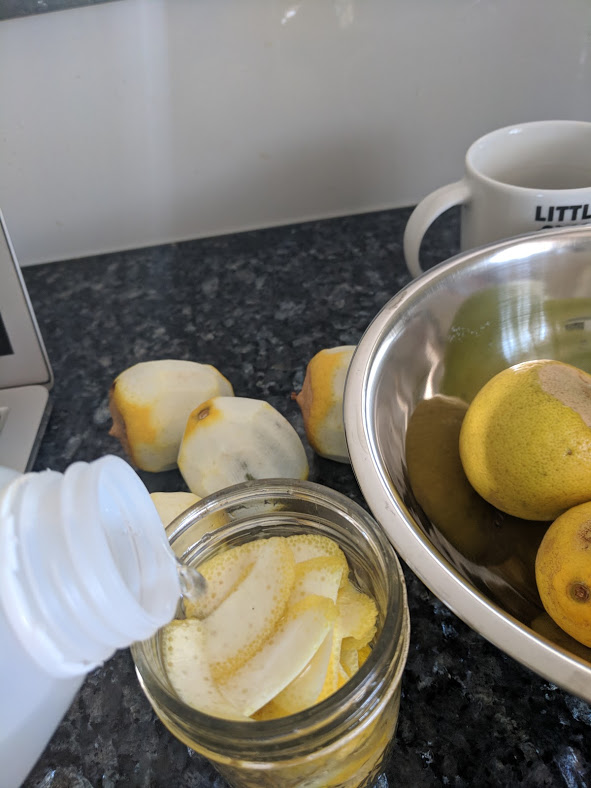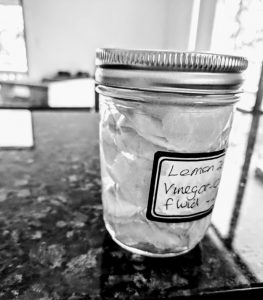 I think I may have mentioned with great excitement a few months back that we had a number of Lemon Trees down the front of the property. The trick is to pick the lemons before the birds or wildlife get to them, or before they scatter to the ground and either get eaten by Angus or chopped up by the lawnmower. We get more than enough lemons to keep us going but there are a few that aren’t as ‘aesthetically pleasing’ so I keep those for cleaning.
I think I may have mentioned with great excitement a few months back that we had a number of Lemon Trees down the front of the property. The trick is to pick the lemons before the birds or wildlife get to them, or before they scatter to the ground and either get eaten by Angus or chopped up by the lawnmower. We get more than enough lemons to keep us going but there are a few that aren’t as ‘aesthetically pleasing’ so I keep those for cleaning.
I have long felt I should do my bit for the environment and while I am fairly responsible I knew I could do better when it came to cleaning. Pouring bleach and antiseptics down the toilet and sinks is not an option when you have a septic system.
The septic system is a common feature of a rural property in Australia but I won’t bore you with an explanation of how the whole system works. Suffice to say the system is reliant on bacteria and enzymes to break down the icky stuff. However, these same enzymes and bacteria can be killed off by harsh household cleaning chemicals, bleach or drain cleaners.
So instead of just thinking ‘I really should’, I had to get to grips with more environmentally friendly alternatives.
Enter the not so great looking lemons.
I covered a lot of research and tried a few recipes to find the most effective combination of natural cleaning ingredient. I have to be honest, I was not totally convinced that natural products would do as good a job as some of my old favourites but I tried to remain open.
So what did I discover?
Well, lemons are great, but what is really great is when you combine Lemons with White Vinegar and Baking Soda (or washing soda). Vinegar is actually AMAZING and would probably be all you ever needed to clean your home – but I don’t want my house smelling of vinegar and I don’t want my washing smelling of vinegar (it reminds me too much of my much missed Scottish delicacy – a poke of chips with salt and – you’ve guessed it – vinegar).
So here’s the recipe that is actually going to get the house clean without damaging the environment (or your septic system if you have one).
You will need to gather some jars/mason jars or airtight jars to store your lemon peels in and lay your hands on an empty spray bottle to use around the home.
Ingredients
- Citrus peels (enough to fill at least half of your mason jar)
- White vinegar (enough to fill up your mason jar, and cover the peels)
- Sodium Carbonate (aka Baking Soda or Washing Soda – think Borax or generic soda)
Equipment
1 large mason jar with a fitted lid
Mesh sieve
Large bowl
Spray bottle
Labels (to date your peel/solution)
Instructions
As you use up different types of citrus (or simply lemons), save the peels instead of throwing them away. Add these peels to a large mason jar until it’s filled at least halfway. (This could take a few weeks.)
Once the jar has enough peels, pour white vinegar over the peels until it fills the jar.
Cover your jar with a lid, and allow it to sit in a dark place for two weeks. The longer you let it sit, the more the citrus will infuse into the vinegar. A good tip is to either have a few on the go at the same time or keep your supply of peels up. I keep my jars of peels under the sink ready to go.
After two weeks, strain your citrus cleaner using a fine mesh sieve placed over a large bowl and discard the peels.
Add your citrus cleaner to a spray bottle and use it as you would any other household cleaner. You can dilute the solution with water to clean floors or disinfect surfaces. Alternatively, to add a little shazam bam to your cleaning efforts – mix with washing or baking soda.
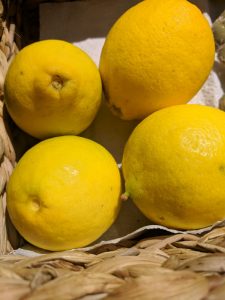
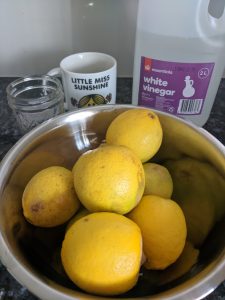
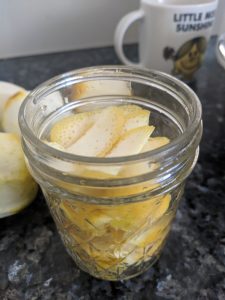
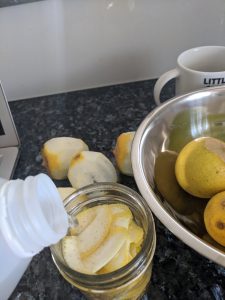

Notes
Want to add a little something extra to your cleaner? Throw in a handful of herbs. If you don’t have to worry about antiseptics in your septic system you could add a drop of Ti-tree oil or Eucalyptus oil for an extra zing and for the oil’s antiseptic properties – but do use caution as Ti-tree is extremely toxic in very small amounts for dogs (so if you have other pets just check it out).
A word of caution: If you have marble worktops or marble tiles do not use Lemons or vinegar as the acid will etch into the marble. Instead, opt for gentle cleaning with baking soda diluted with water.
If you would like more info on the cleaning properties or the proportions to create your own household cleaner just send me an email and I’ll pass on all you need to know.
